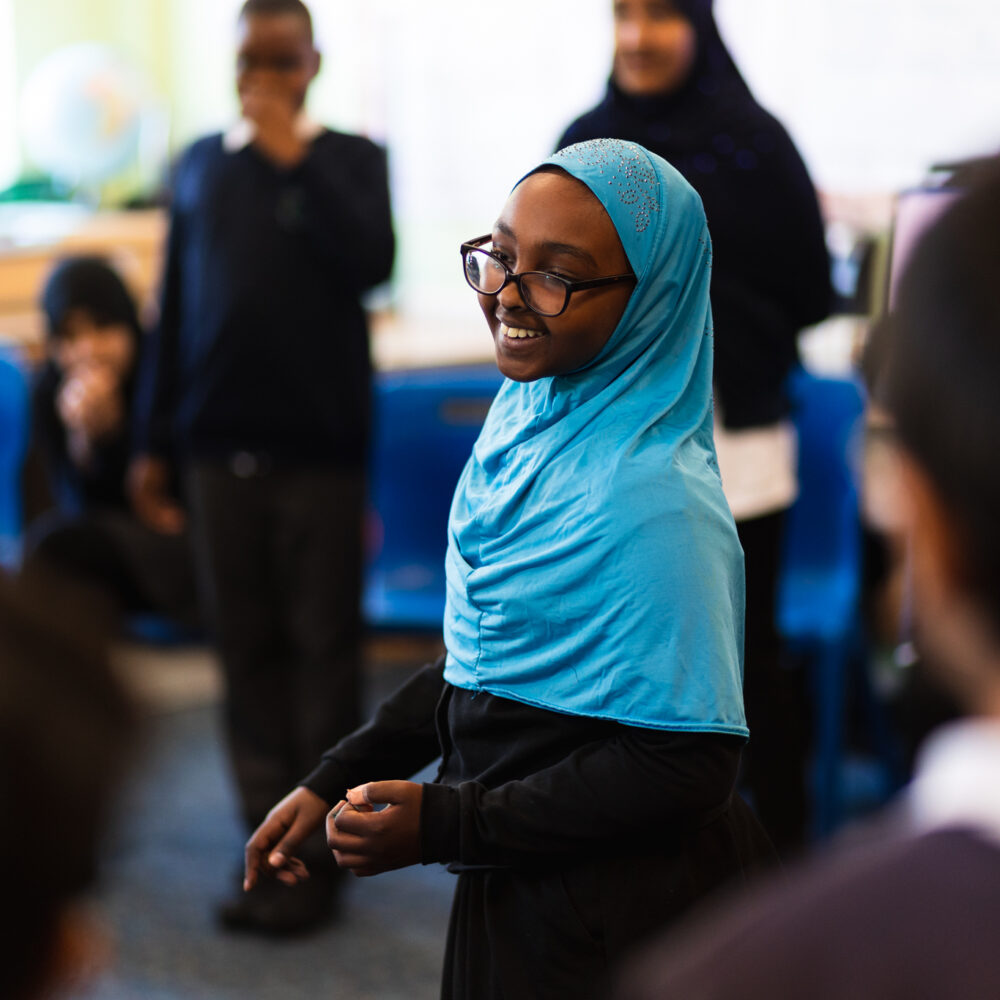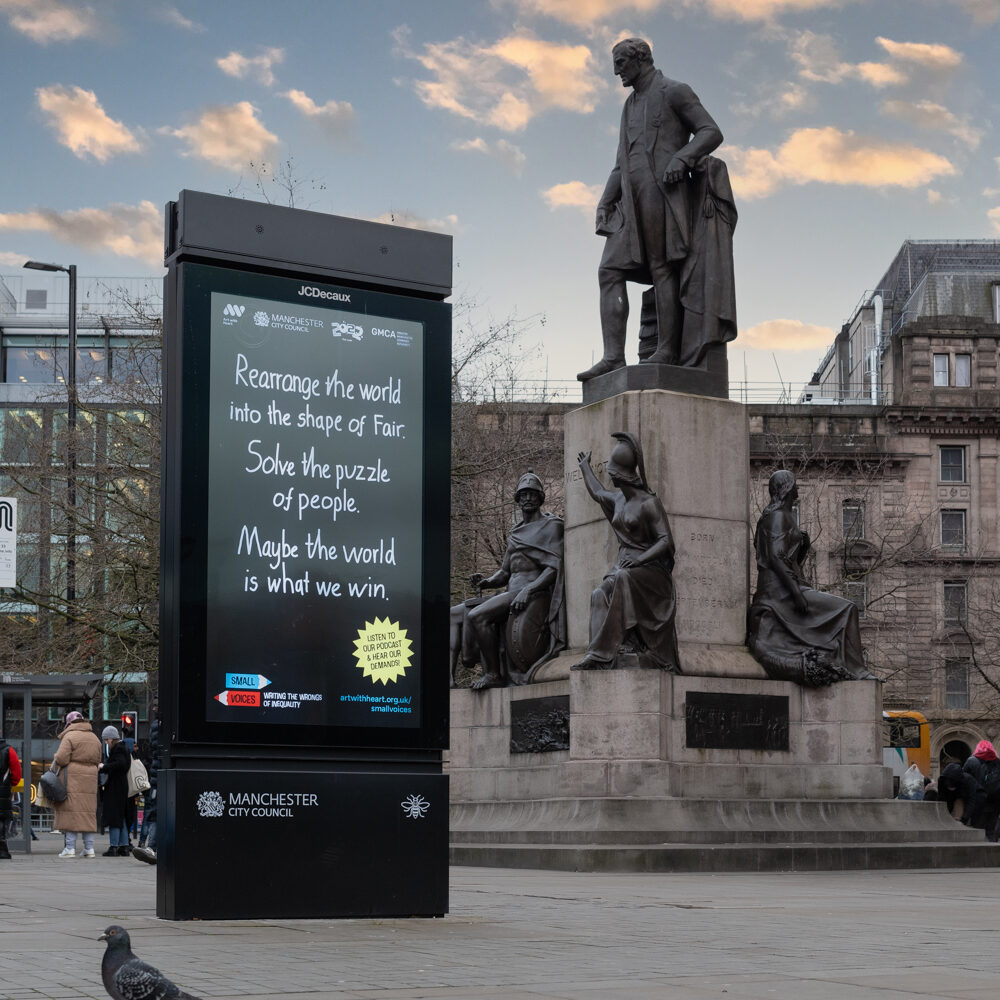



Across 2022-23 we wanted to provide a platform to some of the young voices in our city and really listen to them. In September we began working with Manchester City Council and Year 6 pupils (age 10) from 3 primary schools in Manchester Working with Year 6 pupils, we discussed the state of world, human rights, equality, equity, justice, allyship and what they want the world to look like.
They told us that adults don’t listen to them and they wished the world was different; a kinder, more equal, more just place. They wished that society was built on fairness, dignity, equality and respect, and that people who had power, used it more wisely. They felt that people with privilege and power cared more about keeping it, than acceptance and justice.
Having difficult conversations with young people is important, but it’s also something adults often tell us they struggle with. However, not discussing something doesn’t protect young people from it happening, it only pushes it down within themselves.
We have created an education resource pack resource to support these conversations with young people, aimed at primary school teachers and developed from our work with Year 6 students on this project. The pack is designed for teachers, but if you run a youth group or work with young people, or even want some help kickstarting conversations with your own children, or peers you can download the pack for free.
As an adult, I feel like the world has been a pretty bleak place recently with only small pockets of joy to hold on to. Running these workshops and hearing from these young people, I can say was definitely a joyous highlight of the year. It also left me with the absolute feeling that our schools need so much more time for humanity and less regurgitating for tests.
The students talked openly about fearing many things including climate change, war, hate crimes, sexism and misogyny, racism, homophobia, islamophobia, transphobia, wealth inequality, treatment of refugees and migrants, the cost of living crisis and the difficult choices the adults in their homes are having to make. In one school 90% said they had been impacted by body shaming, body policing, conformity and stereotyping of their bodies by age 10.


One pupil noted how unfair it is that when bad things happen we restrict those affected rather than addressing the issue, she said “It’s not fair that boys can go out in the dark but girls are told it’s not safe. Why don’t they make it safe then, rather than keeping us indoors, it’s not our fault!”.
These conversations were in the wake of the Covid-19 pandemic with the global death toll surpassing 6 million, war in Ukraine, the death of Mahsa (Zhina) Amini in Iran, girls being refused education in Afghanistan, reports of human rights abuses in the preparation of the World Cup in Qatar, nationalism and terrorist attacks and mass shootings globally, heat waves with hottest days since records began, wildfires, flooding, strikes about fair treatment and fair pay in the workplace, and 3 Prime Ministers in the space of 3 months.
In Manchester City Local Authority, nearly 45% of neighbourhoods fall among the 10% most deprived areas in England (Index for Multiple Deprivation). The cost of living crisis has seen fuel poverty and debt put increasing pressure on families; the Trussell Trust reported that in 21/22, compared to 5 years ago, the need for their Food Banks increased by 81%. Meanwhile, The World Inequality Report states that 2020 saw the steepest increase in billionaires’ wealth on record with the richest 10% of the global population owning 76% of all wealth; the inequality gap is widening beyond our comprehension.
World news floods into our homes and devices in our hands daily, and children are more aware of the changes and dangers in the world today than ever before. Many children can tell you these things are happening, but rarely get the opportunity to ask questions, explore how they feel, and think about the changes they want to see in the world.
When talking about allyship, two students created a 4 step plan to being a better ally when you meet someone new, and even though it seems simple on paper, we talked about how having it written down can help us stick to it and makes it feel achievable.
The students created poems and manifestos which speak to adults about the changes they want to see us making which became Small Voices, a special episode of our podcast series Box Tickers, which looks at equality in British society. Their words featured on billboards across the city putting them front and centre. They also wrote a collective letter to the Prime Minister, which you can read HERE which was posted to Downing Street in March and is awaiting a reply. We believe that there is no voice too small. Generation Alpha have a lot to say, and we think it’s time, as adults, that we really listen.
Sarah Emmott 2023
